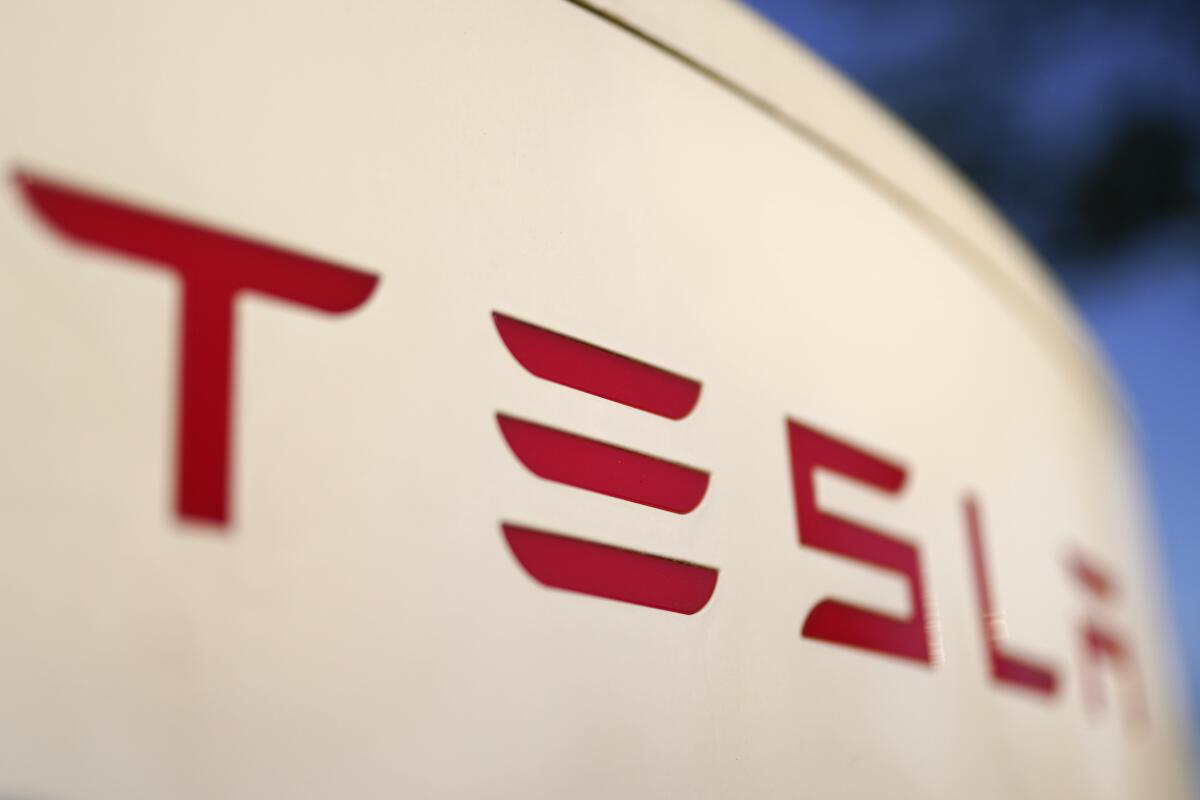Tesla settles lawsuit over fatal crash involving Autopilot software

- Share via
SANTA CLARA, Calif. — Tesla has settled a lawsuit brought by the family of a Silicon Valley engineer who died in a crash while relying on the company’s semi-autonomous driving software.
The amount Tesla paid to settle the case was not disclosed in court documents filed Monday, just a day before the trial stemming from the 2018 crash on a Bay Area highway was scheduled to begin. In a court filing requesting to keep the sum private, Tesla said it agreed to settle the case in order to “end years of litigation.”
Shares of Tesla Inc., down about 30% this year, rose 2.25% on Tuesday.
The family of Walter Huang filed a negligence and wrongful death lawsuit in 2019 seeking to hold Tesla — and, by extension, its chief executive, Elon Musk — liable for repeatedly exaggerating the capabilities of Tesla’s self-driving car technology. The family claimed the technology, dubbed Autopilot, was promoted in egregious ways that caused vehicle owners to believe they didn’t have to remain vigilant while they were behind the wheel.
Evidence indicated that Huang was playing a video game on his iPhone when he crashed into a concrete highway barrier on March 23, 2018.
After dropping his son off at preschool, Huang activated the Autopilot feature on his Model X for his commute to his job at Apple. But less than 20 minutes later, Autopilot veered the vehicle out of its lane and began to accelerate before barreling into a barrier located at a perilous intersection on a busy highway in Mountain View, Calif. The Model X was still traveling at more than 70 mph.
Huang, 38, died at the scene, leaving behind his wife and two children, now 12 and 9 years old.
The case was just one of about a dozen scattered across the U.S. raising questions about whether Musk’s boasts about the effectiveness of Tesla’s autonomous technology fosters a misguided faith in the technology, The company also has an optional feature it calls Full Self Driving. The U.S. Justice Department also opened an inquiry last year into how Tesla and Musk promote its autonomous technology, according to regulatory filings that didn’t provide many details about the nature of the probe.
Tesla, which is based in Austin, Texas, prevailed last year in a Southern California trial focused on whether misperceptions about Tesla’s Autopilot feature contributed to a driver in a 2019 crash involving one of the company’s cars.
More to Read
Inside the business of entertainment
The Wide Shot brings you news, analysis and insights on everything from streaming wars to production — and what it all means for the future.
You may occasionally receive promotional content from the Los Angeles Times.










